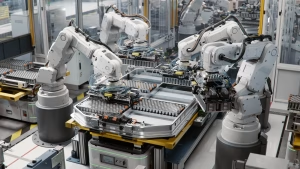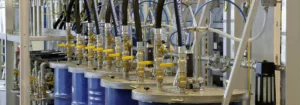Updated: 05.11.2025
What Are Air Motors Used for in the Tyre Industry?
Air motors play a critical role in the tyre industry by powering equipment used in:
- Tyre mounting and demounting
- Wheel balancing machines
- Bead breaking tools
- Tread removal systems
Their compact design and high torque output make them ideal for repetitive, high-precision tasks in automotive manufacturing and maintenance.
Why Are Air Motors Preferred Over Electric Motors?
Air motors offer several advantages over electric motors:
- Explosion-safe: No sparks or heat generation, ideal for volatile environments.
- Lightweight and compact: Easier to integrate into mobile or handheld tools.
- Low maintenance: Fewer moving parts and no electrical components.
- Variable speed and torque: Easily adjustable for different tyre sizes and materials.
How Do Air Motors Improve Tyre Mounting?
Air motors deliver consistent torque and speed, ensuring secure and uniform mounting of tyres to rims. This reduces the risk of improper fitting, which can lead to safety issues or premature wear.
Applications in Bead Breaking and Tread Removal
Bead breaking requires high torque to separate the tyre bead from the rim. Air motors provide the necessary force without overheating or stalling. In tread removal, they enable precise cutting and stripping, improving efficiency and reducing manual labor.
Safety and Efficiency in Industrial Settings
Air motors are inherently safe for use in:
- Automotive workshops
- Tyre recycling plants
- OEM manufacturing lines
Their ability to operate in dusty, oily, or wet environments without risk of electrical failure makes them a reliable choice for industrial applications.
Related Articles
What Are Air Motors Used for in the Tyre Industry FAQ
What are air motors used for in tyre manufacturing
They power machines for mounting, balancing, bead breaking, and tread removal.
Are air motors safer than electric motors?
Yes, they are explosion-safe and ideal for harsh environments.
Can air motors handle different tyre sizes?
Yes, their variable speed and torque make them suitable for a wide range of applications.


